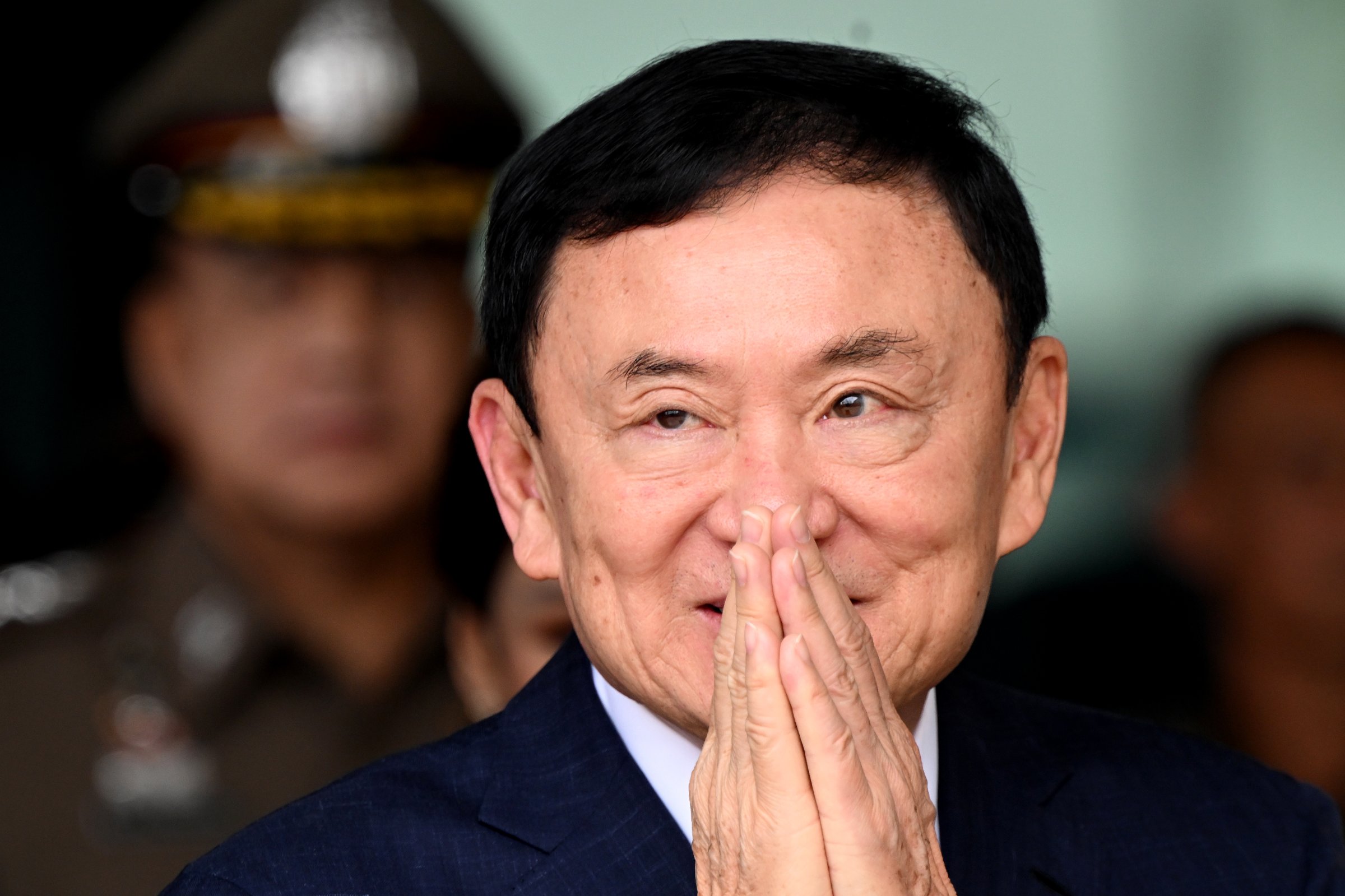
For more than 15 years, one man’s shadow has loomed over Thailand from afar. Billionaire former Prime Minister Thaksin Shinawatra may have lived in exile following his ouster in a 2006 coup d’état and subsequent corruption convictions, but the levers of power were never far from his grasp. Populist parties he backed had won every election since 2001 only to be repeatedly ousted by judicial and military coups—turmoil interspersed by bouts of often deadly street protests.
But Thaksin’s grip loosened following May’s general election, when his Pheu Thai party was bested by the upstart Move Forward Party, which secured 38% of the vote with its radical agenda to bridle the nation’s military and monarchy. Pheu Thai briefly allied with Move Forward, but after the coalition’s candidate for Prime Minister was rejected by the military-appointed Senate, the Thaksin proxy instead struck a deal with 10 establishment-leaning parties, including two directly responsible for his sister’s ouster in 2014.
At 9:25 a.m. on Tuesday, Thaksin returned to Thailand for the first time since 2008, arriving at Bangkok’s Don Mueang Airport wearing a navy blue suit and pink necktie. Posting on social media platform X, formerly Twitter, before his arrival, Thaksin said he wanted to “live on the land of Thailand and share the air with my Thai brothers and sisters.” He landed just hours before a scheduled parliamentary vote that looks likely to return a Pheu Thai candidate, property tycoon Srettha Thavisin, as Prime Minister. Pheu Thai insists that the timing of his return has nothing to do with the vote but was determined as auspicious according to astrological charts.
The truth is far less lofty. After two decades of battling the Thai establishment, urging fervent supporters onto the street and into often deadly confrontation with rivals and security forces, Thaksin has abandoned them to secure his return home. He was arrested after stepping off his private Gulfstream jet and transported to the Supreme Court and then to Bangkok Remand Prison, though nobody expects him to serve anything like the eight years that three of his in absentia convictions warrant. Rumors of a royal pardon continue to swirl.
That Thaksin did a deal with Thailand’s elite power nexus that effectively keeps the democratically elected Move Forward Party out of power has incensed many of his erstwhile supporters. While a raucous crowd of thousands greeted Thaksin at the terminal, social media is filled with outpourings of scorned former acolytes, some of whom have burned Pheu Thai shirts and banners in protest. Memories are seared deep of numerous bloody encounters with Thaksin’s new coalition bedfellows—not least the at least 90 Thaksin supporters killed in 2010 following a police crackdown on a protest in central Bangkok.
“Pheu Thai will pay a heavy price,” says Aim Sinpeng, a senior lecturer at the University of Sydney. “Because their stance for decades is that they're not going to be with the old elites, and now they are.”
It’s a cynical marriage of convenience between two camps that remain sworn enemies. But in Move Forward, the Thai elite found itself facing something far scarier than a brash, ambitious tycoon. If Thaksin tried to co-opt existing institutions for his own ends, Move Forward sought to upend them altogether, vowing to abolish Thailand’s controversial royal defamation law, military conscription, and its unelected Senate.
The resounding victory for Move Forward’s bold manifesto spooked the elites into doing a deal with their archnemesis. Thaksin, for his part, saw that his popularity would only wane further before the next election and, with Pheu Thai desperately running out of funds, it was essentially now or never. “It’s his last chance with Pheu Thai in shambles and his own credibility damaged,” says Napon Jatusripitak, a visiting fellow at the ISEAS-Yusof Ishak Institute in Singapore. “But his reputation as a pro-democracy figure has crumbled.”
It’s certainly a dark day for Thailand’s democracy movement, which was dancing in the street following Move Forward’s stunning victory. Since then, however, party leader Pita Limjaroenrat has been barred from serving as a lawmaker over allegations that he held shares in a defunct media company, contravening byzantine parliamentary rules. (He denies any wrongdoing). There are fears that he will be barred from politics and the party dissolved, just like its progenitor Future Forward Party, and various former iterations of Pheu Thai before.
At the very least, the hope is that the selection of a Prime Minister after three months of political limbo can get the country of 70 million back on track. GDP growth in Thailand slowed to just 0.2% in the second quarter of 2023, down from 1.7% in the previous. The tourism-reliant economy desperately needs stability and leadership.
As for democracy, thanks to Thaksin, the wait goes on.
“We're sick and tired of these shenanigans,” says Thitinan Pongsudhirak, professor of political science at Chulalongkorn University in Bangkok. “We want to have a democratically elected government moving the country forward. And Thaksin now is an obstacle.”
More Must-Reads from TIME
- Cybersecurity Experts Are Sounding the Alarm on DOGE
- Meet the 2025 Women of the Year
- The Harsh Truth About Disability Inclusion
- Why Do More Young Adults Have Cancer?
- Colman Domingo Leads With Radical Love
- How to Get Better at Doing Things Alone
- Michelle Zauner Stares Down the Darkness
Write to Charlie Campbell at charlie.campbell@time.com